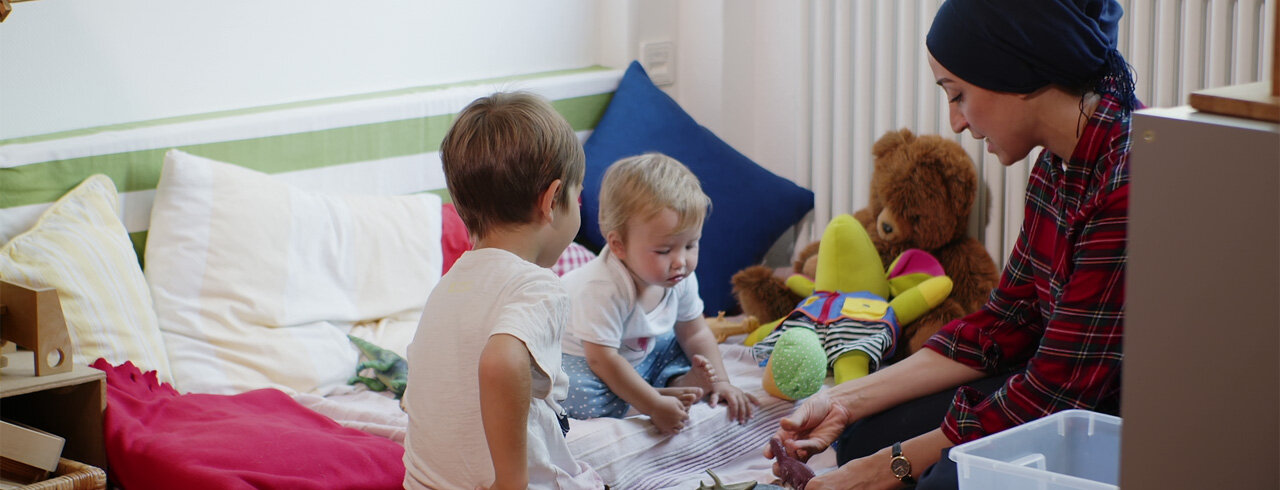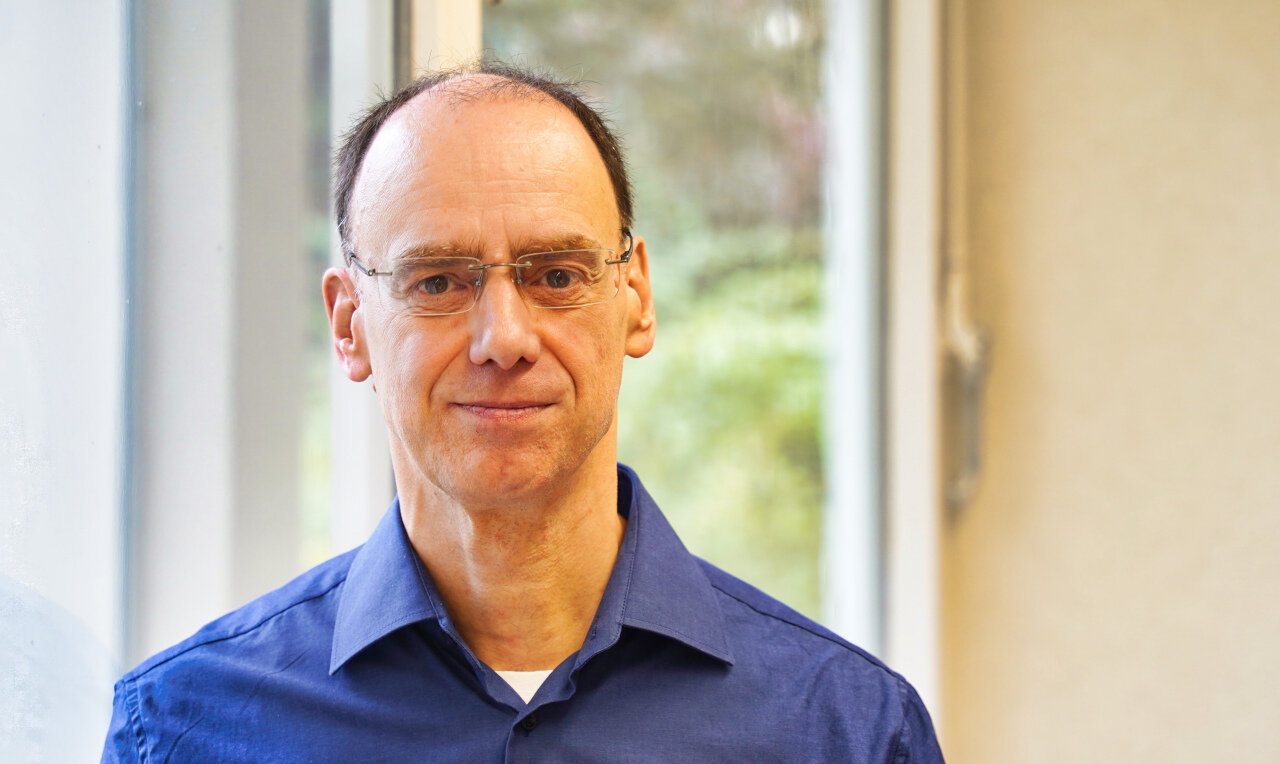
Key research focus education, socialisation and inclusion
Research is focused on socialisation, education and the counselling of young people & families, as well as participation in the context of social work in and with communities (urban and neighbourhood development), cases of disadvantage and disability – including concepts for reducing, avoiding and coping with activity/participation restrictions (ICF) at individual, micro, meso, exo and macro system level.
Professors involved
- Prof. Dr. Gregor Renner
- Prof. Dr. Jürgen Schwab
- Prof. Dr. Martin Becker
- Prof. Dr. Thorsten Burger
- Prof.in Dr. Martina Kaack
- Prof.in Dr. Eva-Maria Klinkisch
- Prof. Dr. Alexander Lenger
- Prof.in Dr. Deborah Lutz
- Prof.in Dr. Claudia Luzar
- Prof. Dr. Christian Roesler
- Prof. Dr. Mone Welsche
- Prof. Dr. Monika Wigger
Current research projects
- BaAN - free
- Inclusion in Daycare Centers
- Comparison of the effectiveness of emotion-focused couple therapy and systemic couple therapy in practice
Examples of completed projects
- Speak out. Together against racism and sexism. Sharing experiences of discrimination. Fighting back together.
- UWentUS
- InstAgT - Individual socio-technical arrangements for the social participation of people with cognitive impairments
- IDEA - Inklusive Digital Memory Archiv: Migrant Women's History as Participation
- DFG Network “Sociology of Economic Thought”
- MARGE - Integration of disadvantaged neighbourhoods in the Upper Rhine region
- Study “Volunteering” for the German Caritas Association
- Further development of integration assistance services in the area of work and employment (permeability)
- Children in care
- Couples counselling
- Tobii
- Strong!
- Olympic base
- Horizonte scholarship programme for future educators with a migration background
- Early help
- Jabbla Company
- Educational counselling centres
Selected publications
- Asunta, P., Hasanen, E. Kiuppis, F., Rintala, P. & R. McConkey (2022) ‘Life is team play’:social inclusion of people with intellectual disabilities in the context of Special Olympics, Sport in Society, DOI: 10.1080/17430437.2022.2037565
- Roesler, C. (2021): The Archetype Concept of C. G. Jung. Theory, Research, and Applications. Lon-don: Routledge.
- Lenger, A.; Schuhmacher, F. (2021): Global Inequality and Widening Global Access in Cross-Border and Transnational Higher Education. The Case of the Global Studies Programme 2002-2013. In: Transcience. A Journal of Global Studies 12 (2), S. 1–20.
- Schirilla, Nausikaa (2021): Knowledge Production in International Social Work – Postcolonial Per-spectives. In: Kristin Sonnenberg und Cinur Ghaderi (Hg.): Social Work in Post-War and Political Con-flict Areas. Examples from Iraqi-Kurdistan and Beyond. Wiesbaden: Springer VS Fachmedien Wies-baden GmbH, S. 65–72.
- Lenger, A.; Wolf, S.; Goldschmidt, N. (2021): Choosing Inequality. How Social Security Fosters Com-petitive Regimes. In: Journal of Economic Inequality 19 (2), S. 315–346.
- Welsche, M.; Klausmann, R.; Moldenhauer, A.; Roberston, Z. (2021): „Quality-time“ im Wohnzim-mer: bewegungsorientierte Impulse zur Stärkung von Familien in der Corona-Zeit. In: Praxis der Psychomotorik (2), S. 97–108.
- Mwansa, K. & Kiuppis, F. (2021) Mind the gaps: On the North/South Nexus in the ‘Sport for Development and Peace’ discourse. Nordic Journal of Comparative and International Education (NJCIE), 5(3), 23–35. https://doi.org/10.7577/njcie.4464
- Kaack, Martina (2021): Zur Relevanz der Zurechnung von Komplexität. Das Interview als Methode der Datenerhebung im Alter früher Kindheit im Kontext von Behinderung. In: Ingeborg Hedderich, Jeanne Reppin und Corinne Butschi (Hg.): Perspektiven auf Vielfalt in der frühen Kindheit. Mit Kin-dern Diversität erforschen. 2. Auflage. Bad Heilbrunn: Verlag Julius Klinkhardt.
- Kröger, S.; Hoffmann, V.; Forster, S.; Overlach, F.; Hintermair, M.; Burger, T. (2021): Zusammenhang von Theory of Mind (ToM) und Sprachkompetenz bei Kindern mit Cochlea-Implantaten. In: Frühförderung interdisziplinär (2), S. 78–90.
- Roesler, C.; Konakawa, H.; Tanaka, Y. (2021): Differences in dream content and structure between Japanese and Western dreams. In: International Journal of Dream Research 14 (2), S. 195–201.
- Welsche, M. (2021): Demokratie erlebt und gelernt in bewegungs- und sportorientierten Angebo-ten? In: sozialmagazin 1-2, S. 26–32.
- Schirilla, Nausikaa (2021): Ausschließungspraktiken und Dominanzansprüche. Aspekte der Dekolo-nialisierung von Wissen in der Sozialen Arbeit. In: Soziale Arbeit 70 (6), S. 202–210.
- Bosse, Ingo; Renner, Gregor; Wilkens, Leevke (2020): Social Media and Internet Use Patterns by Adolescents With Complex Communication Needs. In: Language, Speech, and Hearing Services in Schools. DOI: https://doi.org/10.1044/2020_LSHSS-19-00072.
- Renner, Gregor; Schmidt, Stephanie (2020): Die Teilhabe von Menschen mit hohem Hilfebedarf am Arbeitsleben in Baden-Württemberg. Eine Bestandserhebung von Projekten und Vereinbarungen zur Erhöhung der Teilhabe in der "Werkstatt für behinderte Menschen WfbM". In: Zeitschrift für Heilpädagogik 71 (8), S. 380–392.
- Wiewrodt, D. Wigger, M. (2020): Linda hat einen heilen Kern - Psychodynamik in der psycho-onkologischen und kunsttherapeutischen Begleitung. In: Franzen, G., Hampe, R., Wigger,M. (Hrg.): Zur Psychodynamik kreativen Gestaltens. Künstlerische Therapien in klinischen und psychosozialen Arbeitsfeldern. Freiburg, Alber Verlag. S 94- 117.
- Kricheldorff, Cornelia; Becker, Martin; Schwab, Jürgen E. (2020): Handlungsfeldorientierung in der Sozialen Arbeit. 2. Aufl. Kohlhammer Verlag Stuttgart.
Any questions? Don't hesitate to contact us!
